Twintig jaar fondsenwerving onder alumni
‘Twintig jaar geleden was het bijna onfatsoenlijk om de vraag aan oud-studenten te stellen: ‘wilt u geld geven voor onderzoek en onderwijs?’ Inmiddels leveren alumni ook financieel een steeds belangrijkere bijdrage aan de universiteit. De komst van het Ubbo Emmius Fonds (UEF) in 1996, als een van de Groninger universiteitsfondsen die geld bijeenbrengen voor studenten en wetenschappers
aan de RUG, heeft de betrokkenheid van alumni enorm vergroot. Naar aanleiding van het lustrum vertellen hiernaast enkele onderzoekers, een student en donateurs over het belang van fondsenwerving. Ik hoop van harte dat hun verhalen inspireren en dat de betrokkenheid van alumni met het onderzoek en onderwijs aan de RUG in de toekomst nog verder groeit. Mogen we daarbij ook op uw steun rekenen?’
Gerbrand Visser
directeur Ubbo Emmius Fonds
Philip Everts (1938) en Ineke Everts-Kuik (1938)
Sinds 2000 donateurs van het Ubbo Emmius Fonds
Philip Everts en Ineke Everts-Kuik studeerden beide in Groningen en bewaren daar goede herinneringen aan. ‘We willen het nu mogelijk maken dat anderen, ook uit verre landen, dezelfde ervaring opdoen’, zegt Everts. ‘Bovendien vinden we investeren in onderwijs erg belangrijk. Zeker in een tijd waarin daarop wordt afgeknepen.’
Het echtpaar ziet met instemming dat buitenlandse studenten en jonge onderzoekers worden ondersteund. ‘Onderwijs is de basis voor het leven’, zegt Everts-Kuik. ‘Als je goed onderwijs hebt gehad, zijn je mogelijkheden tot verdere ontwikkeling beter dan met een slechte basis.’ Everts vult zijn vrouw aan: ‘Het is een goede manier van ontwikkelingssamenwerking. Investeren in studenten is investeren in de diepte. Dat zijn de mensen waarvan je hoopt dat ze in hun land opklimmen en het verder helpen. Dat gebeurt ook in de praktijk.’ ‘Wij vinden het dan ook jammer dat niet nog meer alumni bereid zijn het fonds substantieel te steunen’, zegt Everts-Kuik.Uit de rapportages over de besteding van hun donaties halen ze veel voldoening, zeggen beiden. ‘Binnenkort is er weer een bijeenkomst waar ook buitenlandse studenten met een beurs van het fonds aanwezig zijn’, zegt Everts-Kuik. ‘Dat is zeker een motivatie om geld te geven. Het is toch anders om de buitenlandse studenten zelf te spreken dan daarover alleen een verslag te krijgen.’
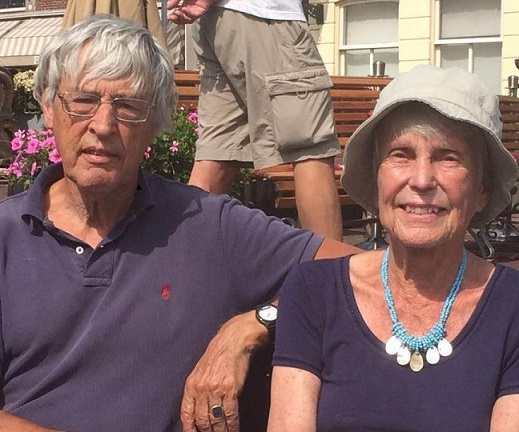
Messina Laurette Manirakiza (1986)
Projectleider-onderzoeker Internationaal recht, Transitional Justice en Gender Justice bij de non- profit organisatie Impunity Watch in Burundi.
Dankzij een beurs van het Ubbo Emmius Fonds kon Messina Laurette Manirakiza in 2013-2014 in Groningen International Economic and Business Law studeren.
‘Burundi, waar ik vandaan kom, zat in een na-oorlogse reconstructie (van 1993 tot 2005 woedde er een burgeroorlog, bp). Men wilde de economie versterken en buitenlandse investeringen aantrekken door het zakelijke klimaat te verbeteren en een stevig juridisch raamwerk tot stand te brengen.’ In haar zoektocht naar opleidingen om bij te kunnen dragen aan de wederopbouw van haar land, stond een Nederlandse universiteit bovenaan haar verlanglijst - vanwege de goede reputatie van Nederland als 'juridische hoofdstad van de wereld'. Via twee alumni kwam Messina Manirakiza uit bij de RUG. ‘Ik kan nauwelijks beschrijven hoe blij ik was toen ik voor de studie werd geaccepteerd en de beurs kreeg toegekend.’ Haar studie is van grote invloed op haar carrière geweest, vertelt ze. ‘In Groningen maakte ik kennis met een genuanceerdere manier om juridische kwesties te benaderen die mijn carrière heeft gevormd. In post-conflictgebieden zoals Burundi concentreert men zich namelijk vaak op de politieke rechten en de burgerrechten. Maar om die te garanderen moet een regering ook economische, sociale en culturele rechten waarborgen, en omgekeerd.’
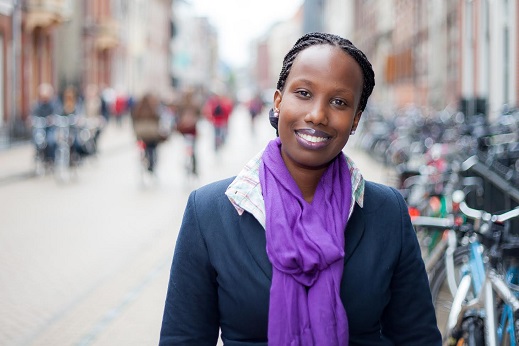
Mladen Popović (1977)
Directeur Qumran Instituut en hoogleraar Oude Testament en het vroege Jodendom
Mladen Popović komt superlatieven tekort voor het Ubbo Emmius Fonds. Ooit, in 2007, redde het fonds het Qumran Instituut min of meer van de ondergang. Mede dankzij de samenwerking die toen ontstond is het uitgegroeid tot een instituut met veertien werknemers dat uniek is in de wereld.
Een 'win-winsituatie' noemt Popović de samenwerking. ‘Door de steun laat het UEF zien hoe verbonden maatschappij en wetenschap zijn. De steun is fantastisch in financiële zin, maar ook wat betreft meedenken. Een alumnikring helpt ons bijvoorbeeld bij de vraag hoe we als instituut kunnen groeien en die groei moeten consolideren. Het fonds heeft ons ook erg goed ondersteund bij de totstandkoming van onze tentoonstelling De Dode Zeerollen in het Drents Museum. Rond de expositie organiseerden ze bovendien allerlei events voor alumni, donateurs, noem maar op.’
Dankzij een crowdfundingproject van het fonds kon het Qumran Instituut onderzoek doen dat essentieel was om een Europese onderzoekssubsidie van anderhalf miljoen euro in de wacht te slepen. ‘Bij het fonds en de alumnikring moeten we aan leken uitleggen waarom we bepaalde zaken willen onderzoeken’, zegt Popović. ‘Dat is enorm leerzaam voor het schrijven van goede subsidieaanvragen.’
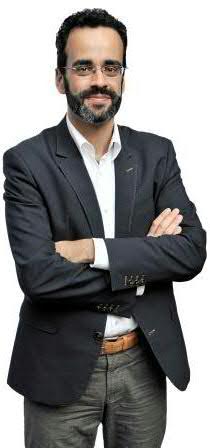
Romana Schirhagl (1984)
Geeft als onderzoekster leiding aan de vakgroep Biomedical Engineering.
Romana Schirhagl registreert stressreacties van formaties vrije radicalen in menselijke cellen met behulp van nanodiamanten. Deze techniek gebruikt ze onder andere in onderzoek naar kanker. De aanschaf van de benodigde apparatuur werd mede mogelijk gemaakt door een crowdfundingproject van het Ubbo Emmius Fonds.
‘Vanuit de onderzoeksgroep dachten we eerst aan een Kickstarterproject’, vertelt Schirhagl. ‘Omdat we geen ervaring met crowdfunding hadden, kwamen we bij het Ubbo Emmius Fonds terecht. Daar bleken ze precies te weten hoe je een crowdfundingproject moet opzetten.’
De samenwerking in dat project leerde Schirhagl bovendien veel over het schrijven van aanvragen voor onderzoekssubsidies. ‘Het was heel nuttig om het crowdfundingproject te doen in samenwerking met mensen van buiten mijn vakgebied. Nu weet ik veel beter wanneer leken iets wel of niet begrijpen. Bovendien wordt het in subsidie-aanvragen steeds belangrijker dat je met de buitenwereld over je onderzoek communiceert. Wij kunnen nu laten zien dat we dat eerder hebben gedaan en dat het algemene publiek ons zelfs geld heeft gegeven.’
Het project gaf Schirhagl als jonge onderzoeker relatief veel bekendheid. ‘Dat helpt bij het vinden van mogelijke samenwerkingen met andere onderzoekers. Hoe meer mensen van je bestaan weten, hoe beter.’
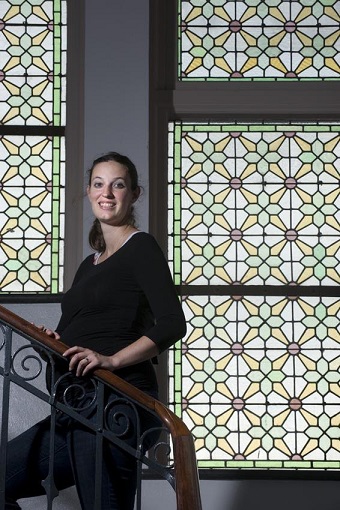
Rob Meuter (1947)
Bestuurslid Ubbo Emmius Fonds
Tijdens een studie in de VS zag Rob Meuter dat het bedanken van de alma mater met gulle giften daar veel sterker is ontwikkeld dan in Nederland. Maar langzamerhand begint het in Nederland ook te komen, constateert hij. Om de fondsenwerving breder te organiseren – en om alumni in staat te stellen contact met elkaar te houden – kwam Meuter met het idee van de RUG-alumnikringen, waarvan er binnen en buiten Nederland inmiddels zestien zijn.
‘In de alumnikring in het Gooi hebben we bijvoorbeeld geld opgehaald voor fundamentele research naar Alzheimer’, vertelt Meuter. ‘Het was meer dan 500.000 euro. Daarmee financieren we onder andere onderzoek van Ellen Nollen. Zij doet onderzoek met genetisch identieke muizen, die ze dankzij het fonds kon kopen.’
Het geld is echter niet de enige manier waarop het fonds Nollens onderzoek vooruit heeft geholpen. ‘Nollen komt twee keer per jaar naar het Gooi komen om te vertellen wat ze met het geld doet’, zegt Meuter. ‘Daardoor is ze ook gegroeid als onderzoeker. Ze beseft dat het geld niet uit een anonieme, publieke pot komt en legt verantwoording af aan mensen die hun eigen geld aan haar geven. Dat heeft haar zelfvertrouwen gegeven bij haar presentaties en aanvragen voor grote subsidies. Inmiddels heeft ze een onderzoekssubsidie van anderhalf miljoen euro uit Brussel gekregen.’
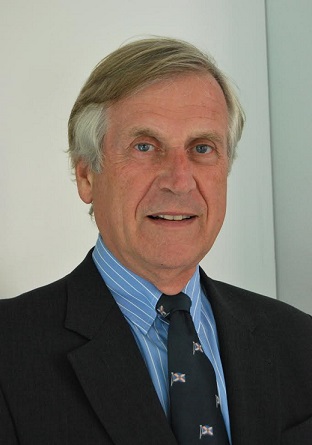
Het Ubbo Emmius Fonds is een van de Groninger universiteitsfondsen die geld bijeenbrengen voor onderzoek en onderwijs aan de RUG. Het UEF heeft een onafhankelijk en onbezoldigd bestuur van oud-studenten. Voorzitter is alumnus en CEO Unilever Paul Polman. Het UEF heeft een ANBI status. Giften aan het fonds gaan voor 100% naar het door de donateurs gekozen doel. Op www.ubboemmiusfonds.nl leest u meer over het fonds, de projecten, fondsen op naam, leerstoelen en beurzen en prijzen die onder het UEF vallen. De crowdfundingprojecten zijn te vinden op www.rugsteunt.nl. Meer informatie over de verschillende Groninger universiteitsfondsen staat op www.rug.nl/alumni/steun-de-rug.
Tekst: Bert Platzer
Bron: Broerstraat 5, het alumni magazine van de Rijksuniversiteit Groningen
